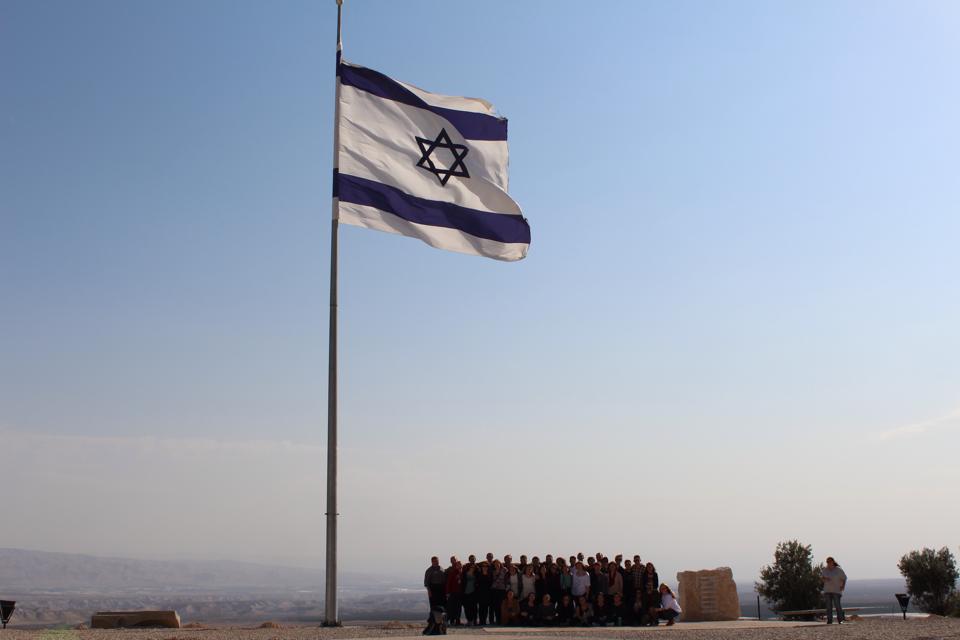Our first Shabbat in Israel, and it was bound to be spectacular:
Friday night, a large group of us left the hotel to walk to the Kotel. There, I joined the women on the right side of the Western Wall to sing and dance, as we ushered in Shabbat. Many of us also joined IDF soldiers, as they welcomed us to dance with them to songs of Zionism and Shabbat. Afterwards, we walked back to the hotel via the Arab shuk. When I was young (before the recent escalation of the conflict), walking through the Arab shuk was normal and not frightening. Now, though I felt safe at all times, I sensed that there was a palpable tension, a tension between Arabs and Jews that could even be seen in the eyes of the young Arab children. Nevertheless, walking there and knowing that despite tension, it is possible for Arabs and Jews to live near each other, reflected many of the lessons I have experienced thus far on the trip.
After returning to the hotel for a great Shabbat dinner, many of us joined our awesome ZOA leaders upstairs for an enjoyable oneg, where we got to know each other even more. This was what I call “chill” time. Even though our conversations are not necessarily Israel related, getting to know each other, and building up our pro-Israel community, is also crucial to advocacy training.
Saturday was a continuation of this type of “free time,” combined with structured sessions later on. I woke up early in the morning and met up with other students at the Great Synagogue in Jerusalem. Coincidentally, this week was the week that the choir at the synagogue performed the Shabbat service. The intensity of their voices astounded me and reinvigorated me with the gratitude I had been feeling since arriving in Israel.
Shabbat lunch was also an experience. Whoever signed up to go to individual host families (thanks Jeff Siedel!) was able to enjoy delicious, homemade food, while also hearing the stories of these families and what helped them make the decision to make Aliyah. The family I went to had TWELVE older children, some of whom also live in Israel.
Khaled Abu Toameh later spoke to us about his experience as an Arab Israeli journalist. He emphasized the importance of education for Arabs so as to prevent incitement of violence in schools and mosques. For me, Khaled’s session with us was important because we heard from an Arab’s own experience in Israel: what the problems are and what they aren’t.
Later, Col. Bentzi Gruber, who has fought in all of the recent wars, spoke about “ethics in the field.” Many of the dilemmas Bentzi faces during a war place undue burdens on IDF soldiers, whose ability to protect Israeli citizens are often limited when Hamas uses human shields to protect themselves. Despite seeing the use of human shields in Gaza, Bentzi consistently emphasized the need to protect the civilians in Gaza. While leading his soldiers in previous operations, no shooting was allowed until all civilians had left the premises. This was even the case when civilians had received personal phone calls and pamphlets in advance warning them to leave the premises- and then the civilians called many neighbors to the roof of a house as human shields.
Truly, hearing both the Arab and Jewish perspectives on Shabbat, both of whose stories complemented each other, was enlightening for me in my pro-Israel advocacy training.
It has been two years since I was last in Israel, and this Shabbat was a great beginning to another 10 days of learning about why I love Israel and how I can share that feeling with others on campus and beyond.
